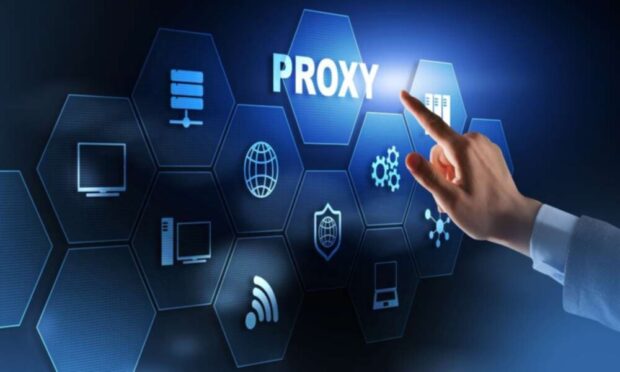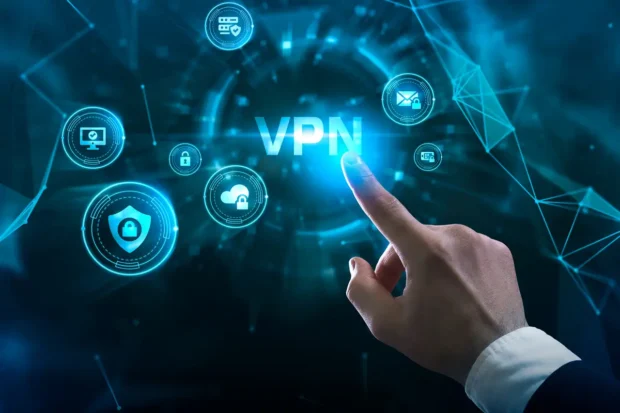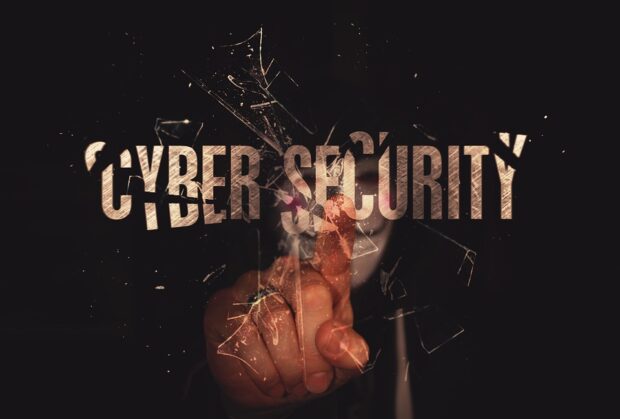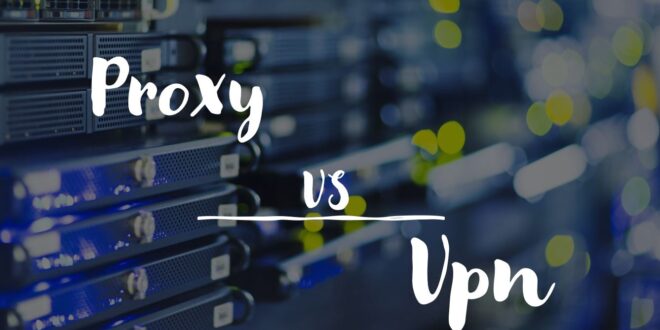Both VPNs and Proxies offer a higher level of privacy than what you probably have now. You will have access to the internet anonymously by hiding your IP but they are carried out quite differently.
A proxy serves as a gateway and is ideal for basic functions such as anonymous web browsing and managing content restrictions. Proxy servers are great at IP masking and misdirection, making them a great choice for viewing geographically limited content. They allow users to bypass content restrictions and monitor or enforce website content restrictions on company time.
The VPN provides a secure tunnel with the server substituting the local ISP routing. VPN connections encrypt and secure all your network traffic not just HTTP or SOCKS from your browser like a proxy server.
A VPN is a great choice when you need to use WiFi at a public location. Using a VPN instead of a totally non-encrypted local WiFi will add another layer of privacy. You can learn more about a VPN at Surfshark.com.

The Drawbacks Of A Proxy & VPN
If you are using a proxy server to mask your internet activities, you might experience some performance issues that could prevent you from streaming or downloading something you want to get. High ping times and other traffic on a proxy server can cause web pages to load very slowly. Some people pay for a private proxy server which will limit the number of people having access to it which will speed up the connection.
Proxies are vulnerable to security issues. They are open to attacks allowing nefarious people to infiltrate networks or private data. Some proxies can still track your browsing habits as well as record usernames and passwords.
Like proxies, VPNs have security issues depending on how close it is to the VPN server you are connected with. A VPN uses a local client to create a secure connection between the user and a VPN server. Any local CPU or memory issues will slow down the connections. In general, VPNs are more comprehensive to use and maintain than a proxy server and are often more complex to manage.
Neither a Proxy nor a VPN can guarantee anonymity while browsing. Both will always encrypt your traffic all the way to the web server. A VPN will only guarantee an end-to-end encrypted connection if you use the HTTPS protocol when you head to a new web address. For sites that only offer information with no login or payment options, this is irrelevant. For other sites that require a login or online payments along with sensitive data, be sure the site is enabled to use HTTPS for added security.

The Benefits Of A Proxy & VPN
The biggest reason for using a VPN over a Proxy is the total encryption for all the traffic you get with a VPN. Unlike a Proxy, a VPN is more secure. A VPN provider will maintain their own networks and you will use their addresses for your connections. The leading VPN providers advertise a logless policy which means you do not have to provide data to anyone regarding your browsing activities.
If you own an IT company, you are responsible for the security of data and users. There are some advantages for both and you probably have configured both for the company. For those who are in the network, you can route traffic through a proxy server to log web traffic to protect the organization from malware or other attacks and enforce the web content policy.
If you have employees working remotely out of the office, you need a VPN to create a secure connection to access the company information such as internal shares or company files.
Which Works Best For You – VPNs Or Proxies?
VPNs and Proxies provide added protection with an additional layer of security and privacy for your data so your goal is to invest time and money into the right tool for your business. If you want your employees to work remotely with secure access to the company files and data, you must set up and maintain a VPN for your people to have access to the network with a VPN. If your concerns are what sites your employees are using, a Proxy server might be the better choice.
In most cases, if you use a VPN service, you can use servers in different locations to work around content restrictions. Occasionally, if you need to use a free proxy server, just be aware of the risks.
If you are implementing your data security on a higher level, there are complex attack situations to take into consideration. Insider threats can be just as dangerous to your data as outsiders.
A Proxy nor a VPN will protect you 100% from cybersecurity attacks. They cannot stop an insider from stealing your company information such as a ransomware attack.
VPNs will send an alert if an attacker breaks through a VPN when sensitive data is being uploaded to an external website.

Why your business needs a VPN?
· Dedicated secure connection
If your business has multiple branches in different geographical locations, the safest way to ensure communication and exchange of data is through using a business VPN. Initially, businesses in multiple locations would connect using a dedicated connection referred to as a leased line over a wide area network. However, the downside of such connections was that ISPs and other third parties with authority could access the data that businesses would send over this kind of network.
On the other hand, a business VPN creates a secure virtual connection via an encrypted tunnel. All the data being sent over this network is encrypted, so no one in between will have access to it. This enhances the security and privacy of all the business communication and data exchange platforms and systems.
· It also enhances security on the general web
Besides the data stored on the local servers, businesses also use cloud storage to store some of their data. They also use cloud applications to execute several business tasks, including accounting, marketing, and sales. Using a VPN to access the general web safeguards all the useful information of business employees from being accessed by third parties with authority such as the government and ISPs.

· Much easier to scale up usage
Business VPNs are designed to accommodate a huge number of users all at once. You can always add more users based on the subscription plan you agreed with your service provider. You need to ensure not a use a personal VPN for business. Personal VPNs are usually designed for single users on multiple devices. However, VPNs designed for business can accommodate hundreds or even thousands of users all at once.
 Comeau Computing Tech Magazine 2024
Comeau Computing Tech Magazine 2024




